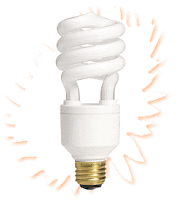Regardless of the car, the fuel consumption depends on how it is driven and the traffic conditions. Listed below are some of the main fuel consumption killers:
Cold Engine : It needs about 10 to 15 minutes before your engine is really efficient. So if your car does short 5-minute trips to the market, bank, school, fiends, etc., your engine never gets warm enough and your fuel consumption may go up by up to 50%. Driving at high engine speeds : If you rev up your engine and drive at high speeds in each gear, you wil lget the thrill of fast driving but will have to pay a price for it. Conversely if you keep the engine at moderate speeds your fuel consumption will be much better but driving at very low speeds may also cause knocking and shorten engine life. Too many stops and starts : Driving in traffic is fuel consumption killer with idling at red lights or when stuck in traffic. If you spend 10 minutes idling on a 30-minutes trip, your fuel consumption may double. Bad Roads : These can combine the impact of too many stops with the need to use high engine speeds in low gears to get moving so it can ruin your fuel consumption. The weight of the car : All modern engines are quite fuel-efficient but the weight of the car is a major factor. A ligher car naturally consumes less fuel than a havier car. Most modern cars meeting current crash safety requirements are heavier than earlier models and so use more fuel. But this is a small price to pay for safety. Engine tuning and timing :Most modern engines with Sequential Electronic Fuel Injection (SEFI) and other electronic engine management systems need very little tuning unlike the old carburettors, but the nozzles and injectors do need to be claend especially thanks to dirty or adultrated fuel that is sometimes encountered. So get your car serviced regularly by your authorised dealer. Air, oil and fuel filters : Choked filters can play havoc with fuel consumption, so ensure that these are regularly serviced and and changed when they are dirty or clogged.
The fuel consumption figures under test conditions assume nearly perfect conditions on a flat one km run, so do not expect figures reported in tests to apply in city conditions, where it may be out by 25% or more.
Buy the most fuel-efficient car you can find, but understand the causes of high level consumption and you can make your vehicle even more fuel-efficient.
(Based on an advertisement by Ford Car Company in India)
